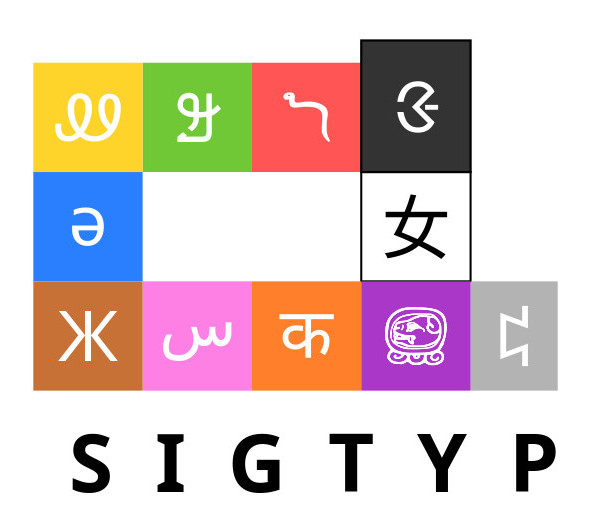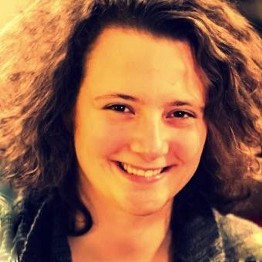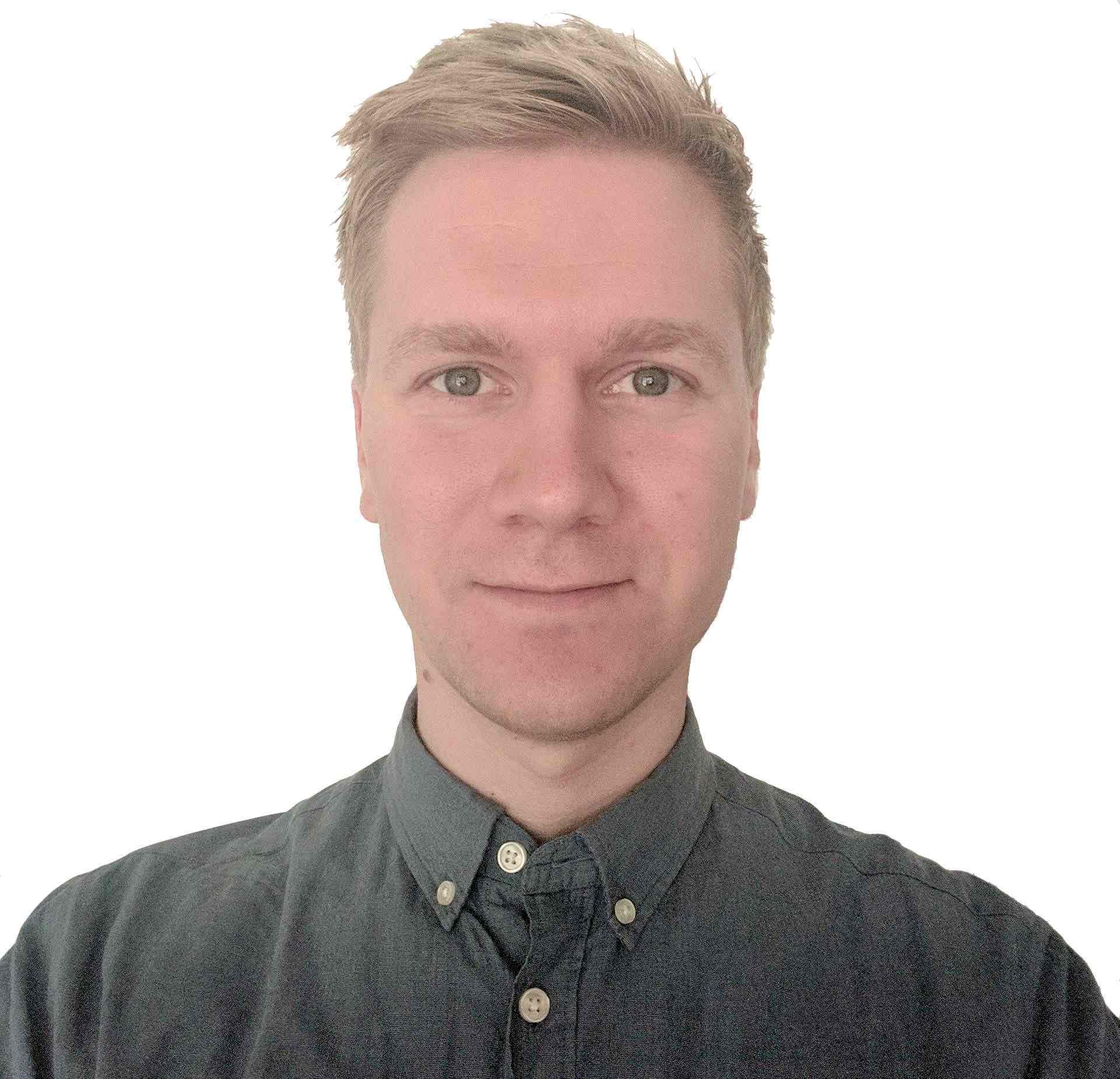June 10, 2021 • Mexico City, Mexico
Co-located with NAACL2021
SIGTYP2021 Proceedings are now available here
Join our RocketChat channel
Important Dates
December 22, 2020: First Call for Workshop Papers
March 1, 2021: Second Call for Workshop Papers
March 15, 2021:March 29, 2021: Paper submission deadline
April 15, 2021: Notification of acceptance
April 26, 2021: Camera-ready deadline
June 10, 2021: Workshop
Keynote Speakers
Workshop Description
Encouraged by the 2019 and 2020 workshops, the aim of the third edition of SIGTYP workshop is to act as a platform and a forum for the exchange of information between typology-related research, multilingual NLP, and other research areas that can lead to the development of truly multilingual NLP methods. The workshop is specifically aimed at raising awareness of linguistic typology and its potential in supporting and widening the global reach of multilingual NLP, as well as at introducing computational approaches to linguistic typology. It will foster research and discussion on open problems, not only within the active community working on cross- and multilingual NLP but also inviting input from leading researchers in linguistic typology. Starting from 2021, the workshop will be dedicated to a shared theme, a central topic that most keynote talks and discussions will be focused on. For instance, in 2021 we would like to follow up a recent debate on linguistic diversity (p-linguistics, the study of individual languages) and universalism (g-linguistics, the study of Human Language), see Haspelmath (2020); Evans and Levinson (2009). The process of annotation of highly cross-lingual corpora (such as recently introduced Universal Dependencies (Nivre et al., 2016) and UniMorph (Sylak-Glassman, 2016)) requires distinguishing language-specific, historically accidental phenomena from truly universal phenomena such as the fact that all languages have demonstratives (Diessel, 2014). Our workshop will serve as a platform to enable fruitful discussions on the topic.
Main Topics
The workshop will provide focussed discussion on a range of topics, including (but not limited to) the following:
• Language-independence in training, architecture design, and hyperparameter tuning. Is it possible (and if yes, how) to unravel unknown biases that hinder the cross-lingual performance of NLP algorithms and to leverage the knowledge on such biases in NLP algorithms?
• Integration of typological features in language transfer and joint multilingual learning. In addition to established techniques such as “selective sharing”, are there alternative ways to encoding heterogeneous external knowledge in machine learning algorithms?
• New applications. The application of typology to currently uncharted territories, i.e. the use typological information in NLP tasks where such information has not been investigated yet.
• Automatic inference of typological features. The pros and cons of existing techniques (e.g. heuristics derived from morphosyntactic annotation, propagation from features of other languages, supervised Bayesian and neural models) and discussion on emerging ones.
• Typology and interpretability. The use of typological knowledge for interpretation of hidden representations of multilingual neural models, multilingual data generation and selection, and typological annotation of texts.
• Improvement and completion of typological databases. Combining linguistic knowledge and automatic data-driven methods towards the joint goal of improving the knowledge on cross-linguistic variation and universals.
• Linguistic diversity and universals. Challenges of cross-lingual annotation. Which linguistic phenomena or categories should be considered universal? How should they be annotated?
Accepted Papers (Archival)
Family of Origin and Family of Choice: Massively Parallel Lexiconized Iterative Pretraining for Severely Low Resource Machine Translation
Zhong Zhou and Alexander Waibel
Measuring Prefixation and Suffixation in the Languages of the World
Harald Hammarström
Predicting and Explaining French Grammatical Gender
Saumya Sahai and Dravyansh Sharma
Morph Call: Probing Morphosyntactic Content of Multilingual Transformers
Vladislav Mikhailov, Oleg Serikov and Ekaterina Artemova
OTEANN: Estimating the Transparency of Orthographies with an Artificial Neural Network
Xavier Marjou
Inferring Morphological Complexity from Syntactic Dependency Networks: a test
Guglielmo Inglese and Luca Brigada Villa
A Universal Dependencies Corpora Maintenance Methodology Using Downstream Application
Ran Iwamoto, Hiroshi Kanayama, Alexandre Rademaker and Takuya Ohko
Improving Cross-Lingual Sentiment Analysis via Conditional Language Adversarial Adaptation
Hemanth Kandula and Bonan Min
Improving the Performance of UDify with Linguistic Typology Knowledge
Chinmay Choudhary
FrameNet and Typology
Michael Ellsworth, Collin Baker and Miriam R L Petruck
Extended Abstracts
Graph Convolutional Network for Swahili News Classification
Alexandros Kastanos and Tyler Martin
Exploring Linguistic Typology Features in Multilingual Machine Translation
Oscar Moreno and Arturo Oncevay
Multilingual Slot and Intent Detection (xSID) with Cross-lingual Auxiliary Tasks
Rob van der Goot, Ibrahim Sharaf, Aizhan Imankulova, Ahmet Üstün, Marija Stepanović, Alan Ramponi, Siti Oryza Khairunnisa, Mamoru Komachi and Barbara Plank
Plugins for Structurally Varied Languages in XMG Framework
Valeria Generalova
Modeling Linguistic Typology - A Probabilistic Graphical Models Approach
Xia Lu
Unsupervised Self-Training for Unsupervised Cross-Lingual Transfer
Akshat Gupta, Sai Krishna Rallabandi and Alan W Black
Let-Mi: An Arabic Levantine Twitter Dataset for Misogynistic Language
Hala Mulki and Bilal Ghanem
Towards Figurative Language Generation in Afrikaans
Imke van Heerden and Anil Bas
Improving access to untranscribed speech by leveraging spoken term detection and self-supervised learning of speech representations
Nay San, Martijn Bartelds and Dan Jurafsky
On the Universality of Lexical Concepts
Bradley Hauer and Grzegorz Kondrak
Quantitative detection of cognacy in the predictive structure of inflection classes: Romance verbal conjugations against the broader typological variation
Borja Herce and Balthasar Bickel
Subword Geometry: Picturing Word Shapes
Olga Sozinova and Tanja Samardzic
A Look to Languages through the Glass of BPE Compression
Ximena Gutierrez-Vasques, Tanja Samardzic and Christian Bentz
Information-Theoretic Characterization of Morphological Fusion
Neil Rathi, Michael Hahn and Richard Futrell
Submission Format
SIGTYP 2021 will consider both archival and non-archival work. We will issue a call for extended abstract submissions (non-archival) and general paper submissions (archival). The accepted submissions will be presented at the workshop, providing new insights and ideas. In terms of non-archival work, we will allow 2-page abstracts of already published work or work in progress. This way, we will not discourage researchers from preferring main conference proceedings, at the same time ensuring that interesting and thought-provoking research is presented at the workshop. In addition, we will consider general archival submissions (4-page and 8-page papers).
Program Committee (Thank you ALL!)
Željko Agić, Corti
Emily Ahn, University of Washington
Isabelle Augenstein, University of Copenhagen
Emily Bender, University of Washington
Johannes Bjerva, University of Copenhagen
Claire Bowern, Yale University
Miriam Butt, University of Konstanz
Giuseppe Celano, Leipzig University
Agnieszka Falenska, University of Stuttgart
Richard Futrell, University of California, Irvine
Elisabetta Ježek, University of Pavia
Gerhard Jäger, University of Tubingen
John Mansfield, The University of Melbourne
Paola Merlo, University of Geneva
Joakim Nivre, Uppsala University
Robert Östling, Stockholm University
Thomas Proisl, FAU Erlangen-Nurnberg
Michael Regan, University of New Mexico
Ella Rabinovich, University of Toronto
Tanja Samardžić, University of Zurich
Richard Sproat, Google Japan
Sabine Stoll, University of Zurich
Daan van Esch, Google AI
Giulia Venturi, ILC ``Antonio Zampolli''
Nidhi Vyas, Apple
Ada Wan, University of Zurich
Eleanor Chodroff, University of York
Elizabeth Salesky, Johns Hopkins University
Sabrina Mielke, Johns Hopkins University
Edoardo Ponti, University of Cambridge
Damián Blasi, Harvard University
Adina Williams, Facebook
Ivan Vulić, the University of Cambridge
Arturo Oncevay, the University of Edinburgh
Koel Dutta Chowdhury, Saarland University
Elena Klyachko, National Research University Higher School of Economics
Alexey Sorokin, Moscow State UniVersity
Sylvain Kahane, Université Paris Nanterre
Taraka Rama, University of North Texas
Harald Hammarström, Max Planck Institute for the Science of Human History
Olga Lyashevskaya, National Research University Higher School of Economics
Kaushal Kumar Maurya, IIT Hyderabad
Johann-Mattis List, Max Planck Institute for the Science of Human History
Garrett Nicolai, University of British Columbia
Yevgeni Berzak, Technion
Olga Zamaraeva, University of Washington
Zoey Liu, Boston College
Jeff Good, University at Buffalo
Priya Rani, National University of Ireland
Silvia Luraghi, University of Pavia
Beata Trawinski, University of Vienna
Miryam de Lhoneux, University of Copenhagen
Kemal Kurniawan, University of Melbourne
Andreas Shcerbakov, University of Melbourne
Ritesh Kumar, Agra University
Organizers
| Ekaterina Vylomova | Elizabeth Salesky | Sabrina Mielke | Gabriella Lapesa | Ritesh Kumar | Edoardo M. Ponti | |
|---|---|---|---|---|---|---|
| Harald Hammarström | Eleanor Chodroff | Anna Korhonen | Roi Reichart | Ivan Vulić | Ryan Cotterell |
Sponsors

Interested in being a Sponsor? Contact us!




